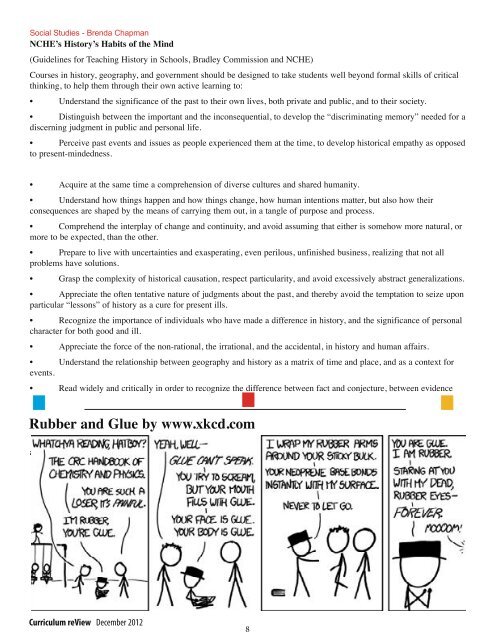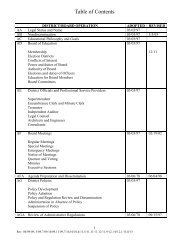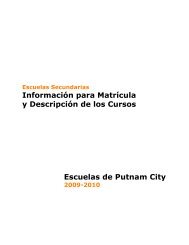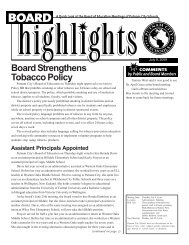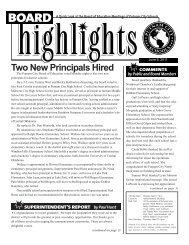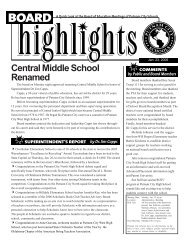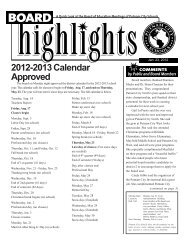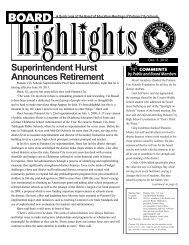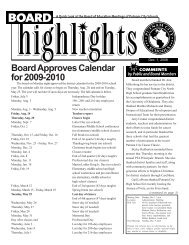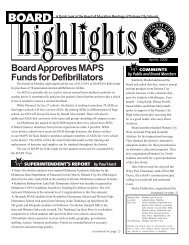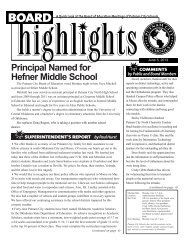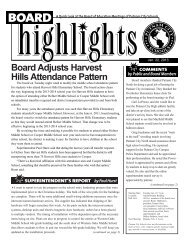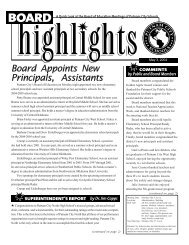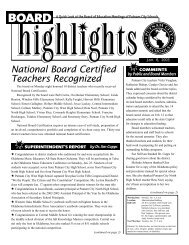December 2012 - Putnam City Schools
December 2012 - Putnam City Schools
December 2012 - Putnam City Schools
You also want an ePaper? Increase the reach of your titles
YUMPU automatically turns print PDFs into web optimized ePapers that Google loves.
Social Studies - Brenda Chapman<br />
NCHE’s History’s Habits of the Mind<br />
(Guidelines for Teaching History in <strong>Schools</strong>, Bradley Commission and NCHE)<br />
Courses in history, geography, and government should be designed to take students well beyond formal skills of critical<br />
thinking, to help them through their own active learning to:<br />
• Understand the significance of the past to their own lives, both private and public, and to their society.<br />
• Distinguish between the important and the inconsequential, to develop the “discriminating memory” needed for a<br />
discerning judgment in public and personal life.<br />
• Perceive past events and issues as people experienced them at the time, to develop historical empathy as opposed<br />
to present-mindedness.<br />
• Acquire at the same time a comprehension of diverse cultures and shared humanity.<br />
• Understand how things happen and how things change, how human intentions matter, but also how their<br />
consequences are shaped by the means of carrying them out, in a tangle of purpose and process.<br />
• Comprehend the interplay of change and continuity, and avoid assuming that either is somehow more natural, or<br />
more to be expected, than the other.<br />
• Prepare to live with uncertainties and exasperating, even perilous, unfinished business, realizing that not all<br />
problems have solutions.<br />
• Grasp the complexity of historical causation, respect particularity, and avoid excessively abstract generalizations.<br />
• Appreciate the often tentative nature of judgments about the past, and thereby avoid the temptation to seize upon<br />
particular “lessons” of history as a cure for present ills.<br />
• Recognize the importance of individuals who have made a difference in history, and the significance of personal<br />
character for both good and ill.<br />
• Appreciate the force of the non-rational, the irrational, and the accidental, in history and human affairs.<br />
• Understand the relationship between geography and history as a matrix of time and place, and as a context for<br />
events.<br />
• Read widely and critically in order to recognize the difference between fact and conjecture, between evidence<br />
Rubber and Glue by www.xkcd.com<br />
and assertion, and thereby frame useful questions<br />
Curriculum reView <strong>December</strong> <strong>2012</strong><br />
8


